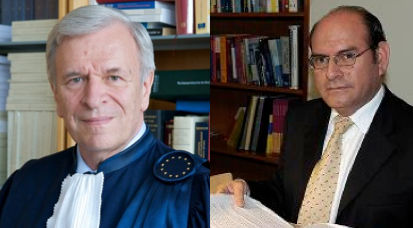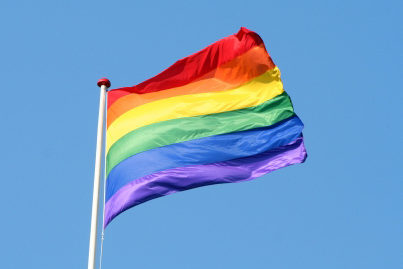
Court of Appeal affirms role for domestic courts in UK torture claims
High Court bar on Abdul-Hakim Belhaj and Fatima Bouchar pursuing claim against UK officials allegedly involved in their abduction and illegal transfer to Libya is overturned.

High Court bar on Abdul-Hakim Belhaj and Fatima Bouchar pursuing claim against UK officials allegedly involved in their abduction and illegal transfer to Libya is overturned.

From Monday 21 July the Court of Appeal will hear the case of Abdul-Hakim Belhaj and Other v. Jack Straw & Others.
It involves a damages claim by a Libyan couple against former and current UK officials for their alleged complicity in the claimants’ torture and illegal transfer to Libya’s Gaddafi regime.
The ICJ, Amnesty International, JUSTICE and REDRESS intervened jointly in this case, which may set an important precedent for future claims brought by torture victims.
The full press release can be downloaded here:
UK-Belhaj Rendition case-news-press release-2014 (full text in pdf)

The ICJ is delighted to announce that two new Commissioners were elected in December 2013: Justice Sir Nicolas Bratza (UK) and Professor César Landa (Peru).
Justice Sir Nicolas Bratza is a former President of the European Court of Human Rights. His term on the court ended on 31 October 2012, and he resigned as a Justice of the High Court on 1 November 2012.
Professor César Landa is the Dean of the Faculty of Law at the Pontifical Catholic University of Peru. Prior to this, Processor Landa was the President of the Constitutional Court of Peru. He also served as a Judge on the Constitutional Court.
In a year of significant change within the ICJ Commission, Justice Bratza and Professor Landa are the 14th and 15th new members to join the Commission in 2013.
Biographies for all our Commissioners can be found here.

In particular, the Court recognizes that preventing sexual orientation discrimination is an important and legitimate purpose that justifies restrictions on freedom of religion.
In its judgment in Eweida and Others v. United Kingdom, issued on 15 January, the European Court of Human Rights affirmed that the right to act in accordance with one’s religion may be limited in order to protect others from discrimination based on sexual orientation. The ICJ, the European Region of the International Lesbian, Gay, Bisexual, Trans and Intersex Association (ILGA-Europe) and the International Federation for Human Rights (FIDH) welcome this decision.
Two of the four applications that were considered jointly in Eweida and Others concerned employees who refused to provide services to same-sex couples because of their personal religious beliefs.
The other two applications concerned employer-imposed restrictions on wearing visible crosses at work.
Lillian Ladele was employed by the London Borough of Islington as a marriage registrar.
She had refused to perform same-sex civil partnership ceremonies as part of her job because she believed that civil partnerships were equivalent to marriage and that same-sex unions were contrary to God’s will.
Following her refusal, she was disciplined and ultimately dismissed.
The Court held that Ladele’s employer’s decision not to make an exception for her religious beliefs was both legitimate and proportionate, in light of the Court’s own case-law concerning the right to be free from discrimination on the basis of sexual orientation and the need for same-sex couples to have legal recognition and protection of their relationships.
There was thus no violation of her right to be free from discrimination on the basis of religion.
Gary McFarlane was employed by Relate Federation, a private organisation providing sex therapy and relationship counselling.
He objected to treating same-sex couples and was dismissed.
The Court found that the right balance had been struck between McFarlane’s right to manifest his religious belief and “the employer’s interest in securing the rights of others.”
There was no violation of his right to freedom of religion, either separately or in conjunction with the right to be free from discrimination.
“Article 9 of the European Convention protects the right to manifest one’s religion in public, but this right is not unlimited,” stated Alli Jernow, Senior Legal Advisor of the International Commission of Jurists. “With today’s judgment, the Court upholds the importance of protecting others from discrimination.”
“This is a very timely decision, and particularly important in view of the fact that similar refusals to perform marriages and partnerships of same-sex or refusal to provide services to same-sex couples is a frequent occurrence in other European jurisdictions. This decision should help to guide national governments on the balance between freedom of religion and the right to non-discrimination on the ground of sexual orientation,” stated Evelyne Paradis, ILGA-Europe’s Executive Director.
“The Court’s reaffirmation that same–sex couples are in a similar situation to different-sex couples as regards their need to recognition and protection is an important step forward; that fundamental human right principle should guide all European states in the future,” concluded Souhayr Belhassen, FIDH President.
The ICJ, ILGA-Europe and FIDH had submitted a joint third-party intervention
See also:
European Court of Human Rights’ press release